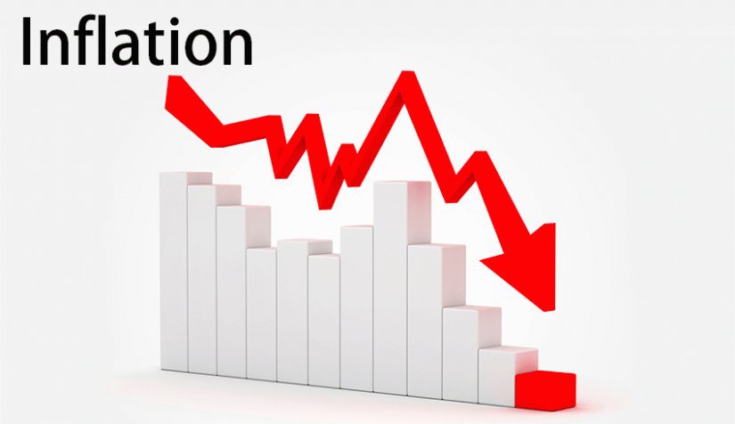Ghana’s inflation is expected to nose dive to 11.5% on average in 2025, the International Monetary Fund has revealed in its Regional Economic Outlook for Sub-Saharan Africa.
This is against an average inflation of 22.3% in 2023.
The Fund also projected a Gross Domestic Product (GDP) growth of 4.4% in 2025, as against 2.8% in 2023. This indicates that there will be an increase in aggregate demand and supply in the economy next year.
According to the Fund, headline inflation in sub-Saharan Africa has been declining since reaching its peak in November 2022, with the situation varying across countries.
“Even among countries with a marked decline in inflation, only a select few have reduced policy interest rates over the past 12 months (Botswana, Ghana, and Mozambique). The majority have opted to continue tightening or maintain elevated policy rates, even after inflation has passed its peak”, it stated.
It added “This cautious stance in monetary policy stems from two key factors. First, median core inflation only recently approached the levels seen before the pandemic. Second, sub-Saharan African countries started their monetary tightening cycles later than other Emerging Markets and Developing Economies (EMDEs), leaving them to play catch-up while many EMDEs have started easing since the second half of 2023”.
Nonetheless, it pointed out that the signs are growing that more countries in the region could soon have more space to lower interest rates. This is demonstrated by monetary policy rates in real terms becoming increasingly positive across the region.
The IMF however not that the monetary policy should remain focused on ensuring price stability.
Fitch Solutions projects 19.0% average inflation for Ghana in 2024
Fitch Solutions projected an average inflation of 19.0% for Ghana in 2024.
According to the London-based firm, the lower inflation will alleviate pressure on household finances and boost the purchasing power of consumers.
A Senior Country Risk Analyst at Fitch Solutions, Mike Kruiniger said though the March 2024 inflation showed an uptick, this can be primarily attributed to base-side effects and expects inflation to resume a downward trend in the coming months.
“So lower inflation will alleviate pressure on household finances and increase the purchasing power that will spur economic growth”.
Latest Stories
-
Ghanaians to enjoy reliable electricity this Christmas – ECG promises
4 minutes -
Police deny reports of election-related violence in Nsawam Adoagyiri
8 minutes -
‘We’re not brothers; we’ll show you where power lies’ – Dafeamekpor to Afenyo-Markin
11 minutes -
EPA says lead-based paints are dangerous to health, calls for safer alternatives
2 hours -
Queenmother calls on President-elect Mahama to appoint more women in his government
4 hours -
Atletico Madrid beat Barcelona to go top of La Liga
4 hours -
Usyk breaks Fury’s heart with points win in rematch
4 hours -
Ghana-Russia Centre to run Russian language courses in Ghana
10 hours -
The Hidden Costs of Hunger: How food insecurity undermines mental and physical health in the U.S.
10 hours -
18plus4NDC marks 3rd anniversary with victory celebration in Accra
13 hours -
CREMA workshop highlights collaborative efforts to sustain Akata Lagoon
13 hours -
2024/25 Ghana League: Heart of Lions remain top with win over Basake Holy Stars
14 hours -
Black Queens: Nora Hauptle shares cryptic WAFCON preparation message amid future uncertainty
15 hours -
Re-declaration of parliamentary results affront to our democracy – Joyce Bawah
15 hours -
GPL 2024/25: Vision FC score late to deny Young Apostles third home win
15 hours

